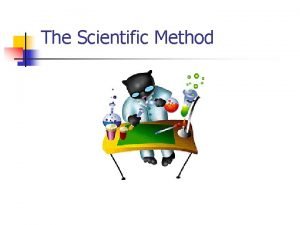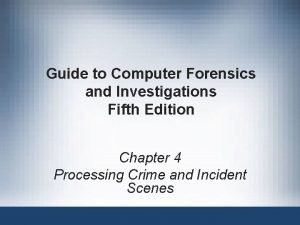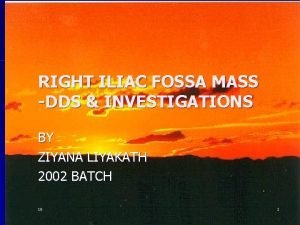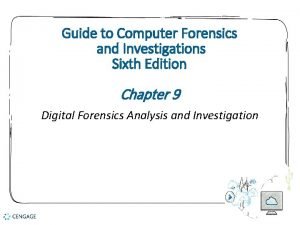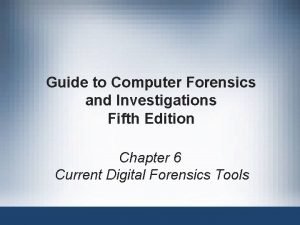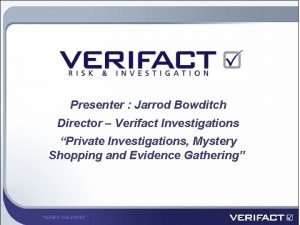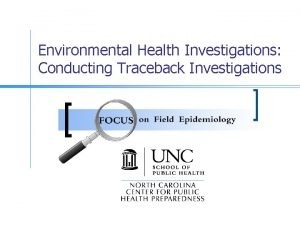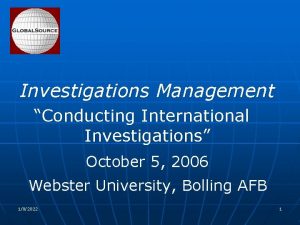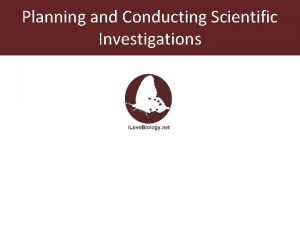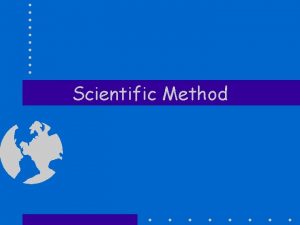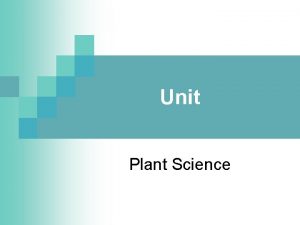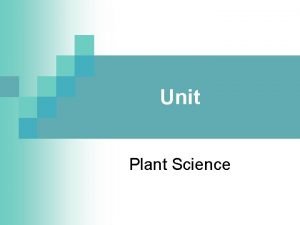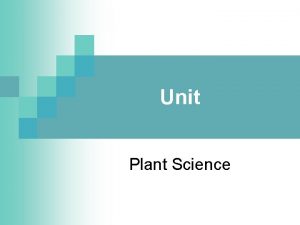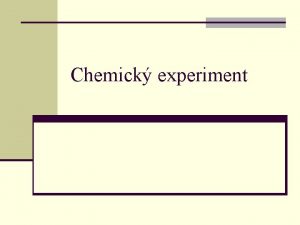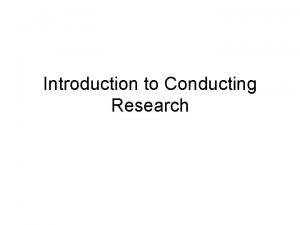Scientific Investigations Conducting a Scientific Experiment Scientific investigations














- Slides: 14

Scientific Investigations

Conducting a Scientific Experiment

• * Scientific investigations are objective, systematic approaches to answering questions about the natural world. • *The goal is to better understand how nature works by modeling this behavior as laws and theories. • *There are several processes involved in conducting a scientific investigation.

• *A hypothesis is an informed conjecture about how nature works, testable, but not yet tested and confirmed. • * A hypothesis is more than a prediction because a hypothesis proposes a law, model, or theory that supports predictions and relates them to other variables. • *Hypothesis are valuable even if they are not supported by data. They often lead to further investigations.

• *A variable is any measurable property of a natural system that can change in response to other variables. • * Observation is the process of obtaining information by using the senses and by using instruments designed for the purpose. • * It can also mean the record of an event or a measurement of a variable.

• * Processes used in scientific investigations include: • • • 1. Defining a problem or a question. 2. Planning a strategy for the investigation. 3. Identifying variables that could be important. 4. Collecting data and information. 5. Organizing data.

• 6. Analyzing and interpreting data. • 7. Making predictions from the data. • 8. Testing those predictions.

• * Of course scientific investigations require use of appropriate and reliable equipment and technology. • * Scientific investigations do not always use these exact steps in this order. • * The strategy used must be intelligently adapted to each particular situation.

Types Of Scientific Investigations

• * Ideally an experiment is a systematic procedure to study something under controlled and regulated conditions. • * But in some types of investigations, like fieldwork, or observations of unexpected events, scientists must “make do” by dealing with uncontrolled conditions.

• * Laboratory experiments allow scientists to make precise observations because they are able to control more factors. • * Other types of investigations involve many more variables. • * On the other hand, other scientific investigations may do a better job of replicating the exact conditions of nature.

Characteristics of Good Scientific Investigations

• * The quality of scientific investigations can be judged in a number of ways. • * Good investigations are • • 1. Carefully planned. 2. Well controlled. 3. Have a large sample size. 4. The procedure and results are clearly documented so that the experiment may be critiqued by peers and replicated by others.

• * Scientific results reported in newspapers, magazines, or on the internet should, ideally, posses these qualities. • * Often they do not, due to careless reporting, or misguided attempt to simplify a complex subject. • * Such imperfect accounts make it difficult or impossible for the reader to judge the quality of the science reported.
 Scientific method of observation
Scientific method of observation Paper towel lab
Paper towel lab Scientific experiment steps
Scientific experiment steps Gummy bear experiment scientific method
Gummy bear experiment scientific method Gummy drop rules
Gummy drop rules Chs investigations
Chs investigations Craigslist investigations
Craigslist investigations Investigations
Investigations Forensic science fundamentals and investigations chapter 6
Forensic science fundamentals and investigations chapter 6 Right iliac fossa mass investigations
Right iliac fossa mass investigations Guide to computer forensics and investigations 6th edition
Guide to computer forensics and investigations 6th edition Tasks performed by computer forensics tools
Tasks performed by computer forensics tools Bmv toledo ohio heatherdowns
Bmv toledo ohio heatherdowns Why aren t descriptive investigations repeatable
Why aren t descriptive investigations repeatable Verifact investigations
Verifact investigations
